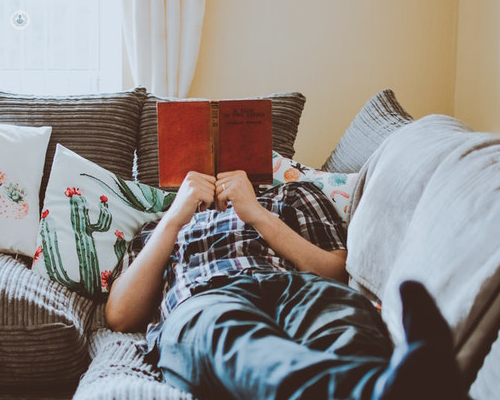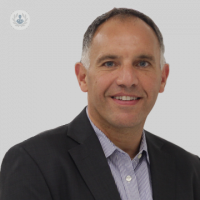Self care in the new normal: Are you still making time for yourself and your health?
Written in association with:Dr Jon Goldin is a renowned consultant in child and adolescent psychiatry with vast experience in assessing and managing depression, mood disorders and anxiety. In the third instalment of this series on coronavirus and mental health, Dr Goldin gives advice for parents, carers and anyone who may be finding maintaining good self care a challenge as we transition to the ‘new normal’ . As Dr Goldin says, “This is a marathon, not a sprint … so we need to be looking after ourselves”. It’s still important, more than one year and a half after the pandemic began, that we take care of our wellbeing. This article asks five crucial questions to help you reflect on how well balanced your self care is.

How are you sleeping?
Getting a good night’s sleep and resting when you need to is, as we all know, vitally important in maintaining a good general level of health. However, although a good sleep routine is a basic area of our self care routine, it is often neglected. Dr Goldin reminds us that the importance of sleeping well should not be downplayed: "It’s very, very easy to get caught up in the anxiety that is out there and forget about these basic aspects of self care…these things are so important, particularly at a time like this."
What are your social media habits these days?
Given the atypical times we find ourselves in, it can be tempting to keep the endless twenty-four-hour news reports on in the background or to constantly scroll through social media looking for updates. This constant exposure may give you feelings of anxiety and worry. Dr Goldin suggests checking a reliable news source just once or twice a day to stay informed without becoming overwhelmed by potentially upsetting news.
Are you making time for what you find relaxing?
Be it reading on the sofa, practising yoga with a YouTube tutorial, listening to your favourite music or watching a new TV series, it’s still vitally important that you prioritise activities you find relaxing. Setting aside time to relax sets you up for dealing with the challenges we are facing whilst living in a pandemic, such as working from home, changing routines and socialising differently.
Are you eating well?
Maintaining a healthy and balanced diet is one of the cornerstones of good general health, as we all know but often forget. Dr Goldin reminds us that we shouldn’t neglect eating well, as it is a simple but vital way to take care of ourselves.
Have you made time recently to have a really good chat with a friend or family member?
Sharing your feelings with someone you can open up to is essential, especially in these challenging times. Being listened to and expressing worries you may have is a great way of releasing built up tension and anxiety. Connecting with a friend or family member and allowing them the same opportunity to share their feelings is a great way of supporting those we care about. Dr Goldin believes that the pandemic has prompted us to re-evaluate the importance of connecting with others:
“ It’s kind of ironic in a way that at a time that people are having to isolate more because of the virus, I think we are also realising how interconnected we are. ”
Keeping up video calls with family and friends that were so beneficial during lockdown, as well as meeting up in person when you can, will help to support your wellbeing.
Maintaining a well-balanced lifestyle whilst living in a pandemic is a huge challenge. Keeping in mind these key areas of self care will help you and your family to navigate somewhat uncertain times with good health and sound wellbeing.
You can find videos of Dr Goldin discussing the effects of the coronavirus pandemic on mental health on his Top Doctors profile. If you think your child would benefit from a consultation with Dr Goldin to discuss their mental health, visit his Top Doctors profile.


